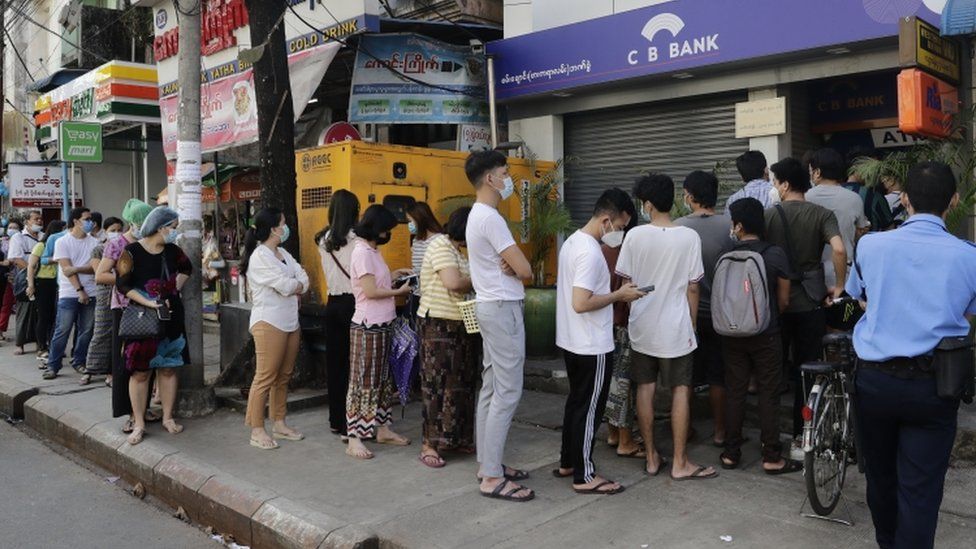Military Coup in Myanmar: A serious challenge to a fragile democracy
Myanmar woke to the news on February 1 that the military had seized control of the country. The takeover was announced in a statement aired on a military-owned television station. It said the top army commander was in charge and a one-year state of emergency had been declared.
The country’s civilian leader, Aung San Suu Kyi, had been detained, along with other members of her National League for Democracy (NLD) party. After the military affiliated party, the Union Solidarity and Development Party, lost in the 2020 General Election, the military began questioning the integrity of the results. Despite not having any evidence of alleged election fraud they have repeatedly asserted, they continued to push back on claims they were undermining democracy.
Myanmar, also known as Burma, was ruled by the armed forces until 2011, when democratic reforms led by Aung San Suu Kyi ended military rule. She spent nearly 15 years in detention between 1989 and 2010. She was recognized internationally for her efforts to foster democracy and received the Nobel Peace Prize in 1991. But her international reputation suffered severely following an army crackdown on the mostly Muslim Rohingya minority.
No major violence has been reported. A coup so soon after an election in which 70% of voters voted for Aung San Suu Kyi is likely to be defied and violent repression cannot be ruled out.
The Network for Human Rights Documentation shared the following:
“The Network for Human Rights Documentation – Burma (ND-Burma) strongly condemns the actions of the Myanmar Tatmadaw which led to the arrest and detainment of Government officials, including State Counsellor Daw Aung San Suu Kyi and President, U Win Myint. The arrests were made early in the morning as those in Burma awoke to Internet outages and communication blackouts. This coordinated attack on democracy constituted that of a coup under the leadership of Senior General Min Aung Hlaing. We are concerned for the safety of those detained currently and for the future security of those in the country. Further, ND-Burma calls for their immediate and unconditional release and for the Myanmar Tatmadaw to respect the 2020 General Election results, in which the National League for Democracy (NLD)-led government secured a second term victory. The international community must put pressure on the military to adhere to democratic norms and principles, including abolishing the 2008 constitution and re-writing one in its place that does not allow for an abuse of power.
After the military affiliated party, the Union Solidarity and Development Party, lost in the 2020 General Election, the military began questioning the integrity of the results. Despite not having any evidence of alleged election fraud they have repeatedly asserted, they continued to push back on claims they were undermining democracy. Now, they are citing section 417 of the Constitution to justify their coup over the Union Election Commission’s management of the election and election results.
A state of emergency has been declared by the Myanmar Tatmadaw. By way of the Constitution, they have also taken over all three powers of the State including the legislature, executive and judiciary for one year. Their actions today are evident that the Myanmar Tatmadaw is truly not interested in committing to a peaceful transfer of power, nor are they interested in abiding by the country’s existing laws. This week an emergency meeting at the United Nations Security Council must be called, and members must address the current situation in Myanmar with greater force and effectiveness than they have in the past. This must include the UN Security Council to convene an emergency meeting to respond to the situation, including sending a delegation to Myanmar. Calls from civil society organizations must not be ignored.
ND-Burma lends our solidarity to long-time human rights defenders of Burma, who have stood tall in the face of resistance against the forces of the Myanmar Tatmadaw. We align our efforts for justice and respect for the rule of law with the civilians who have lived through history repeating itself too many times. We therefore reinforce our calls for the release of the political leaders and stakeholders immediately. Thus, ASEAN countries must unify in condemnation against the actions of the Myanmar Tatmadaw and assist in the return to civilian government and protection of human rights. The international community at large has a responsibility to not only condemn these actions but to hold the actors within the country accountable for the military’s crimes against democracy and its people.”
Read this statement from the National Council of Churches in the USA on the military coup in Myanmar

